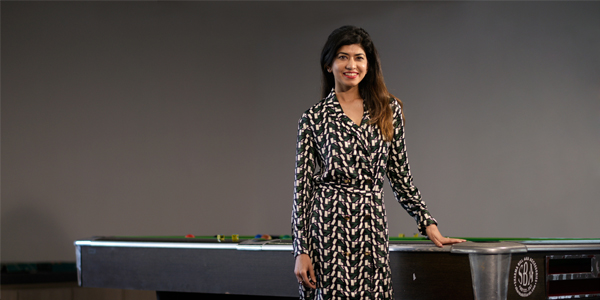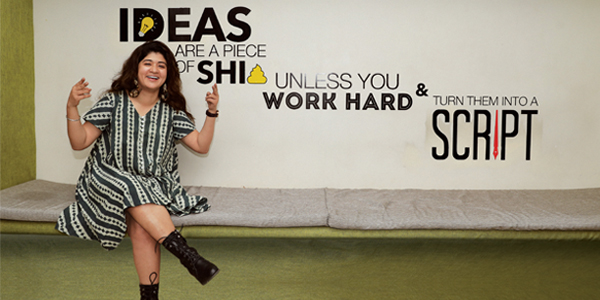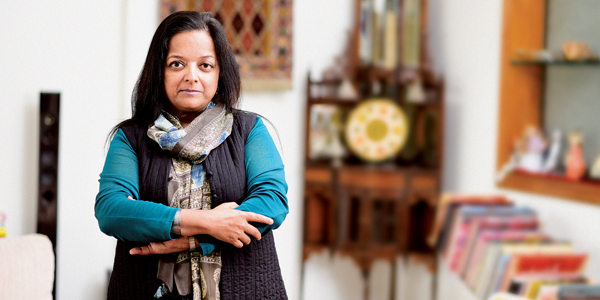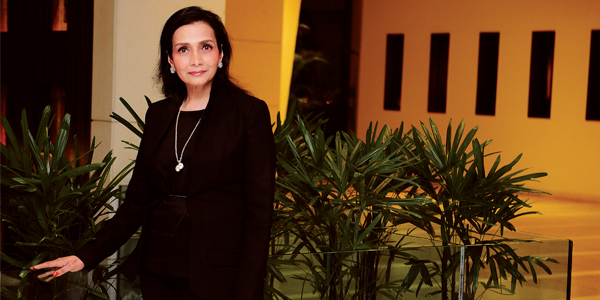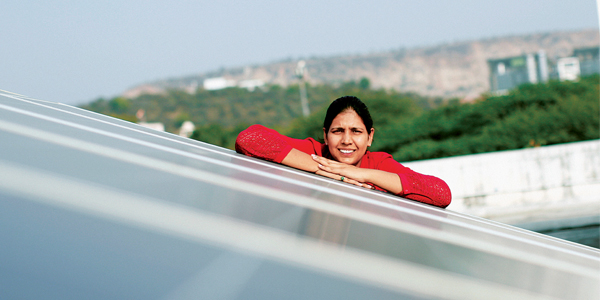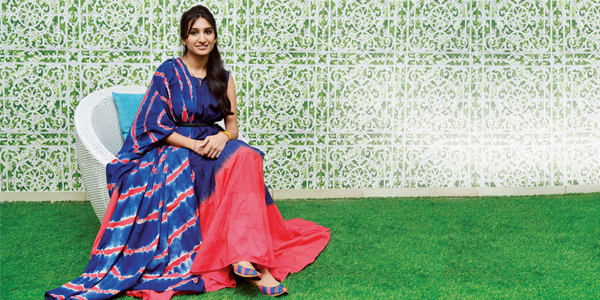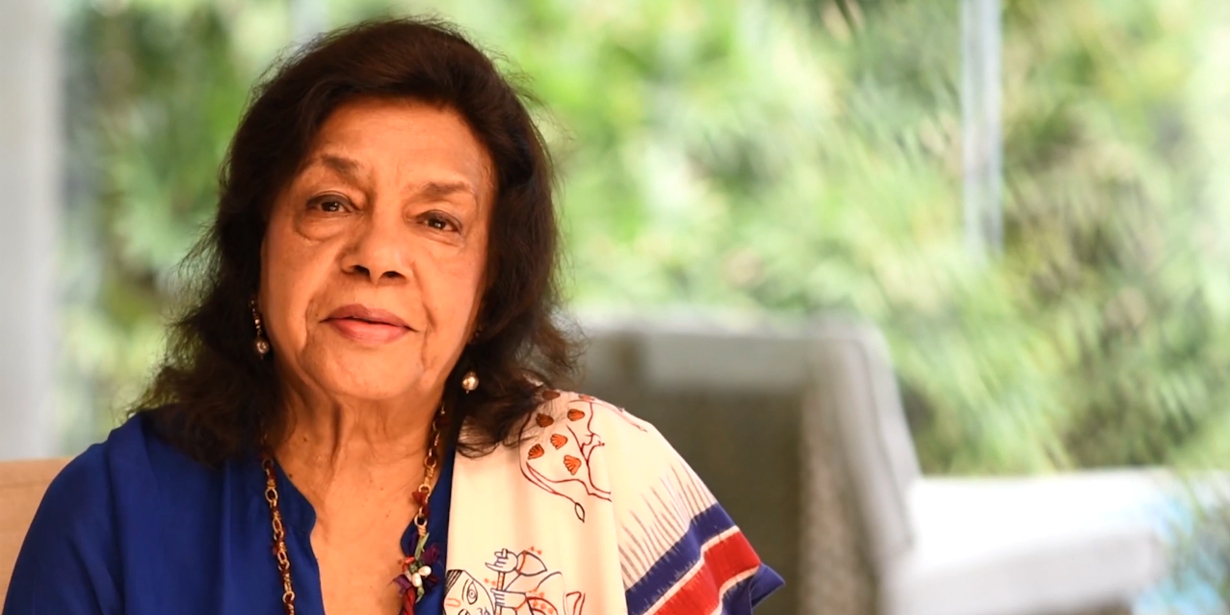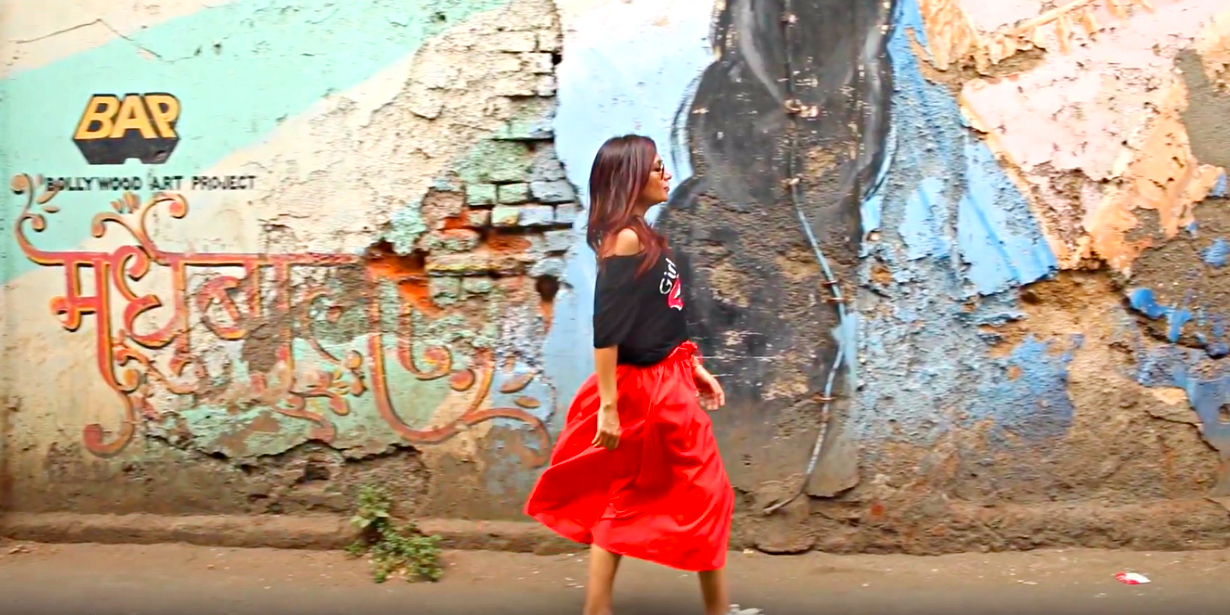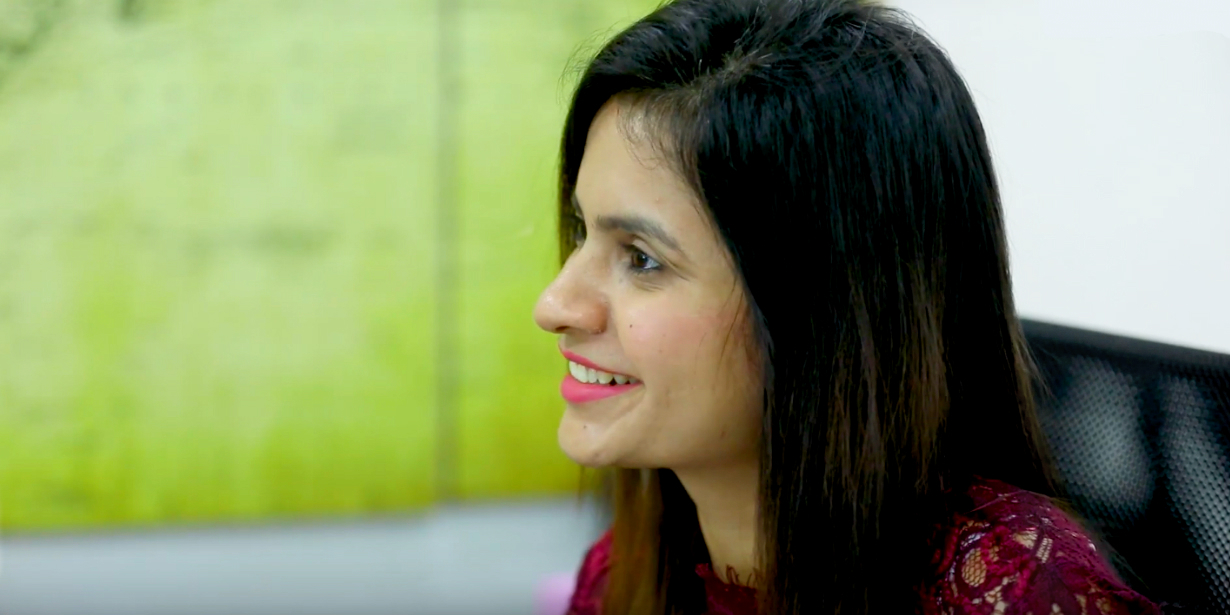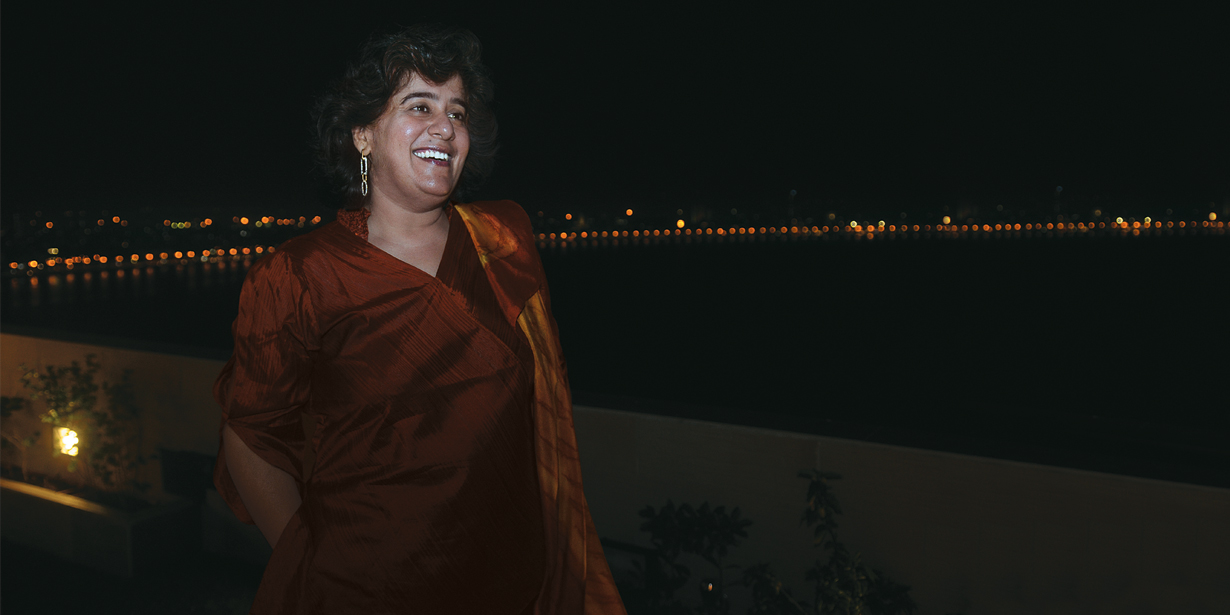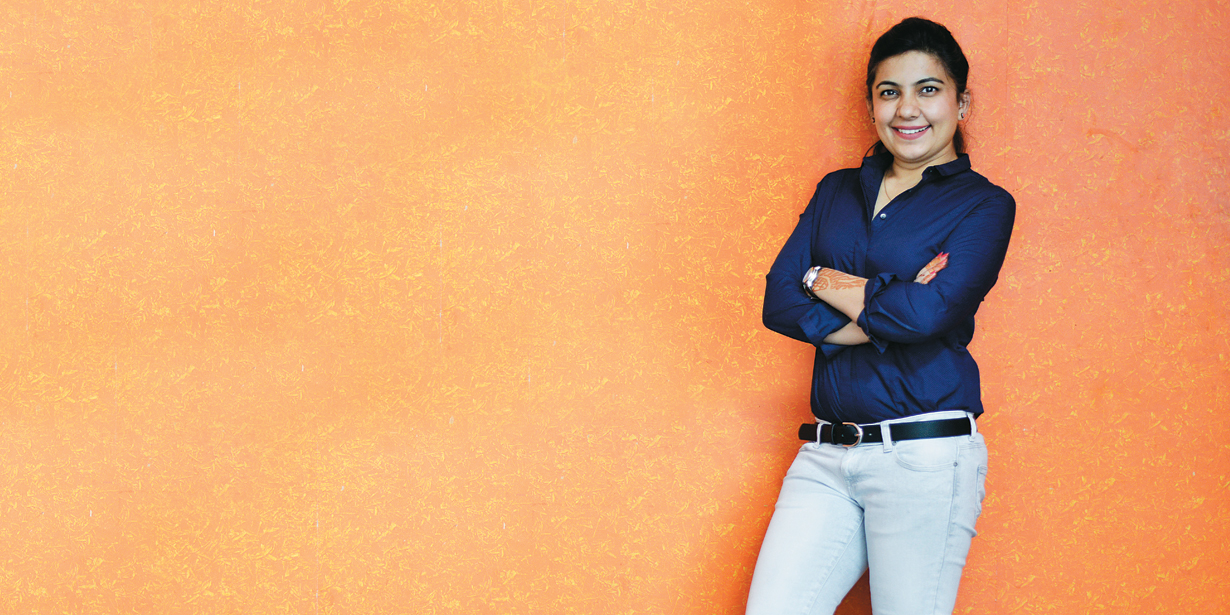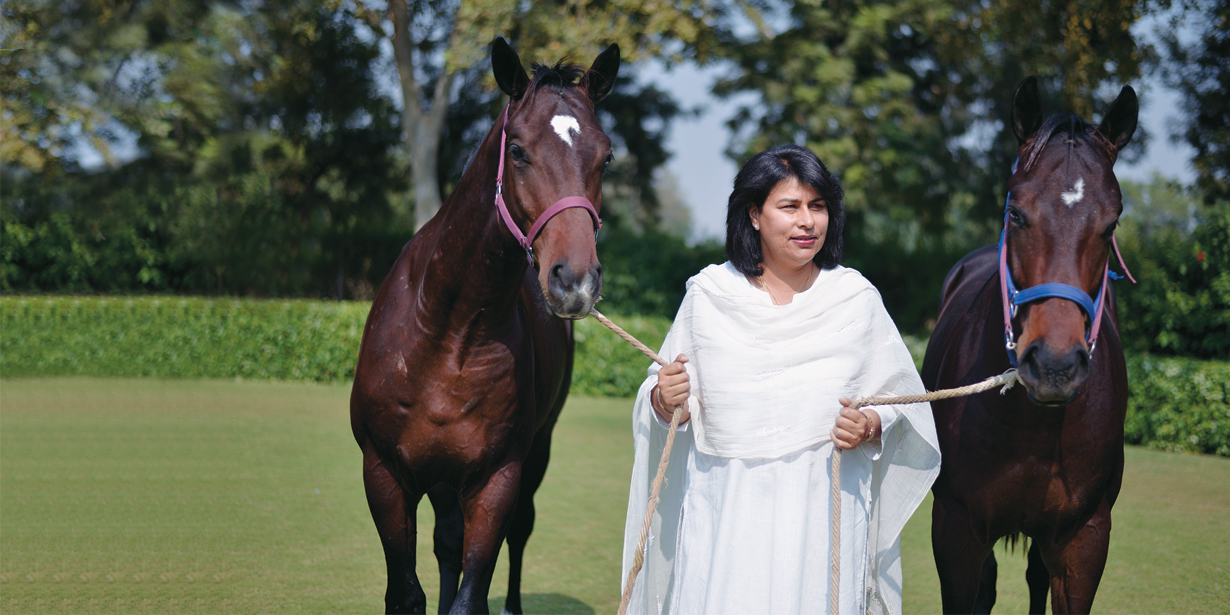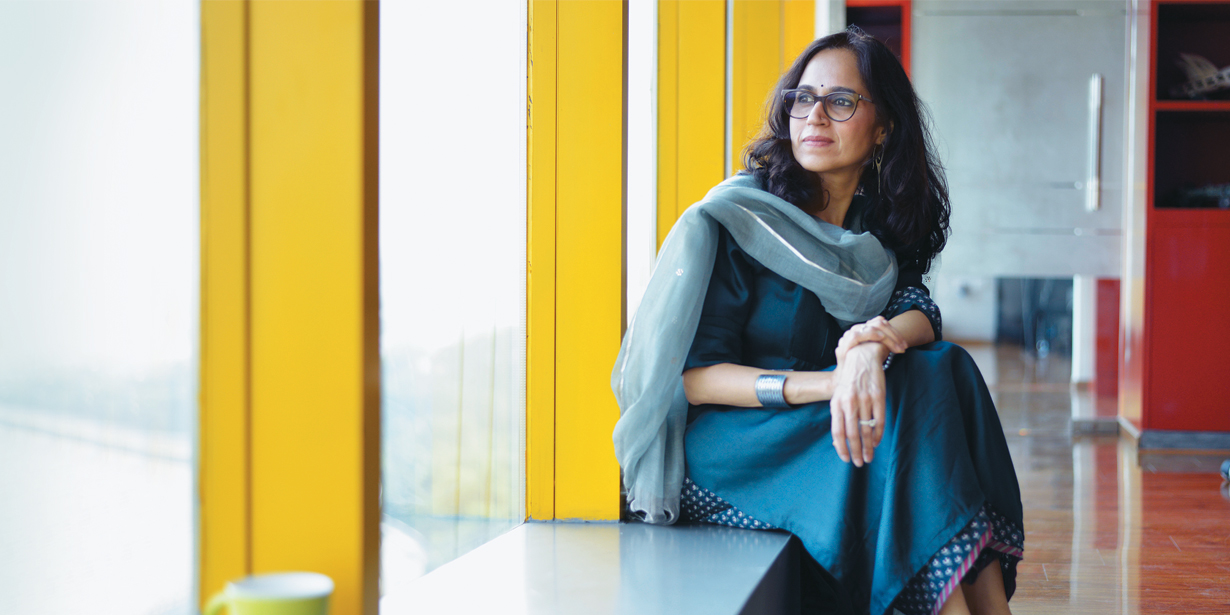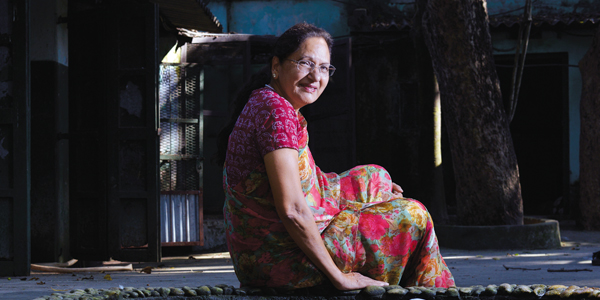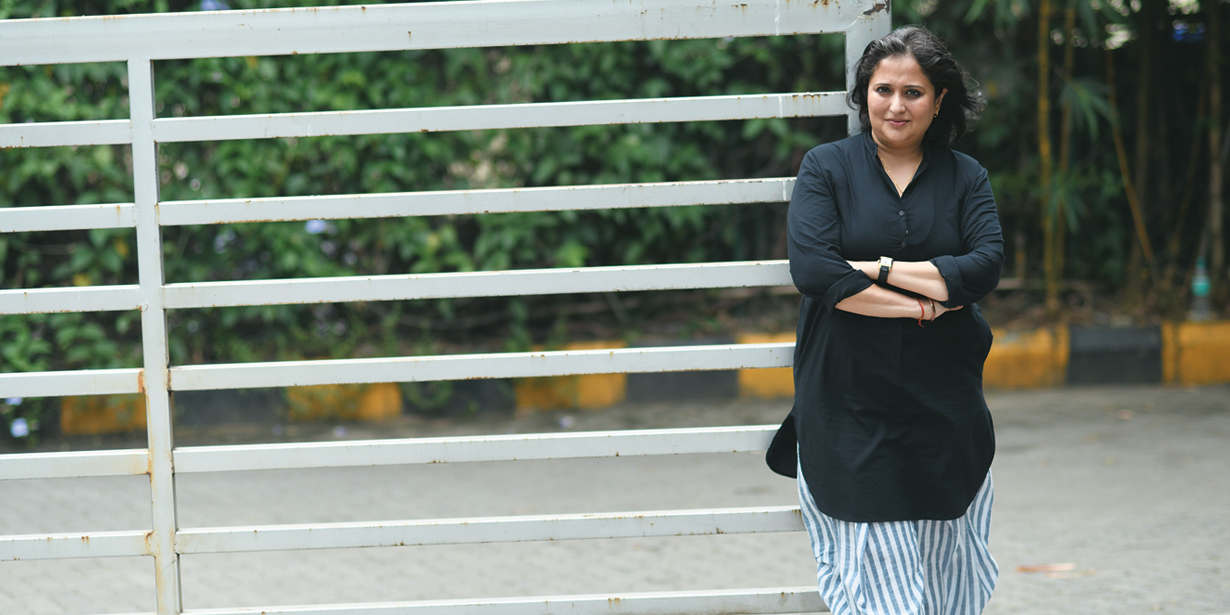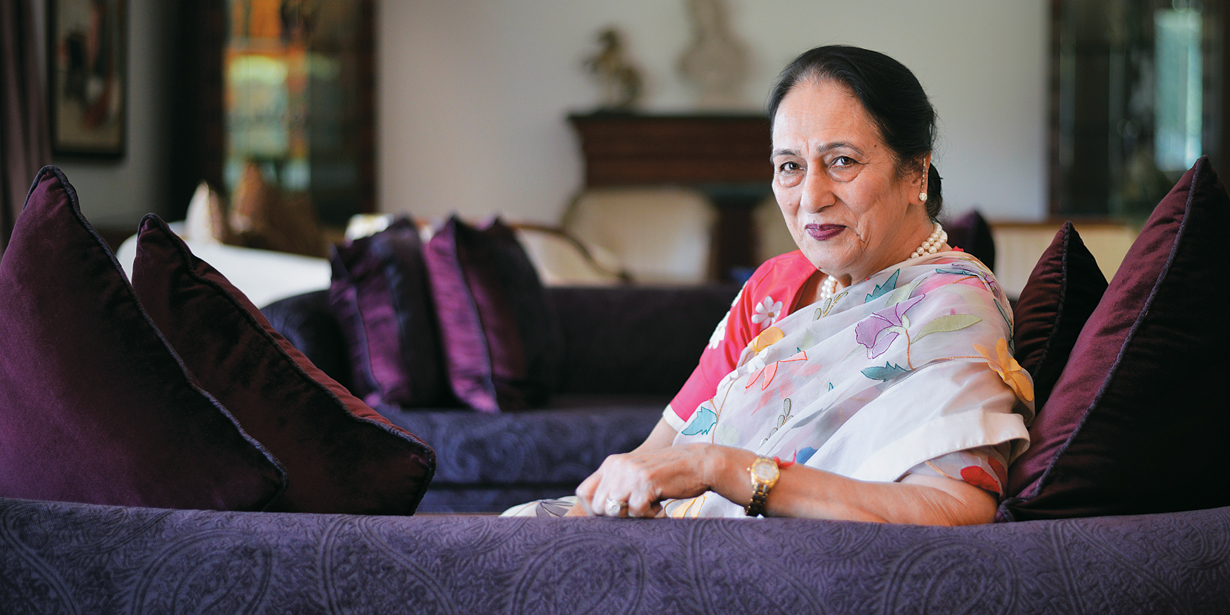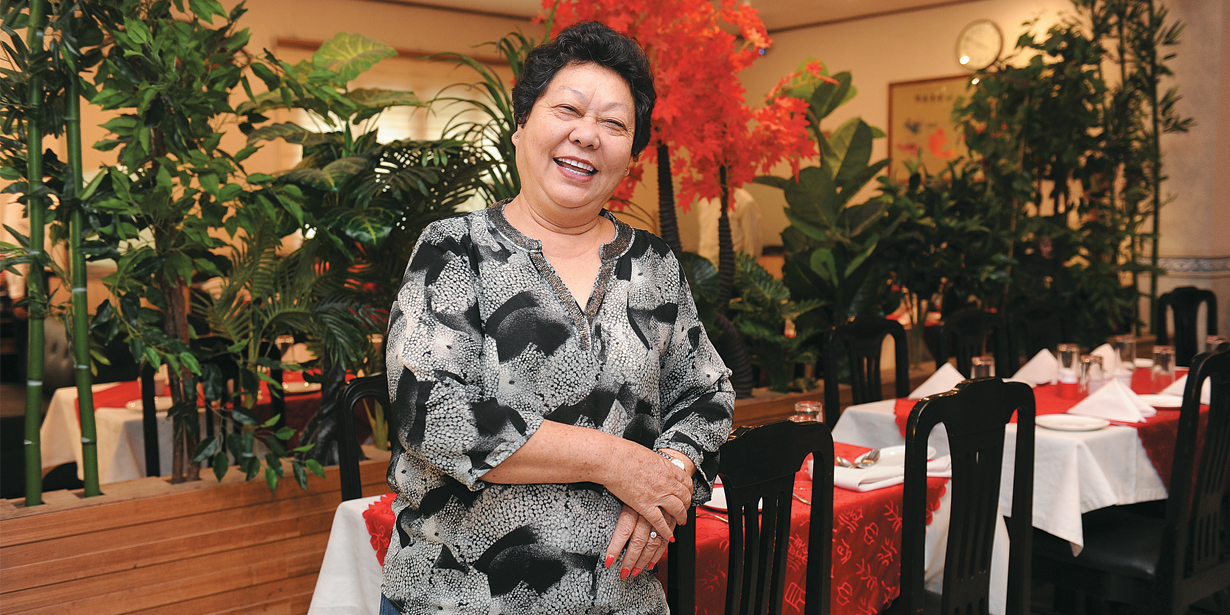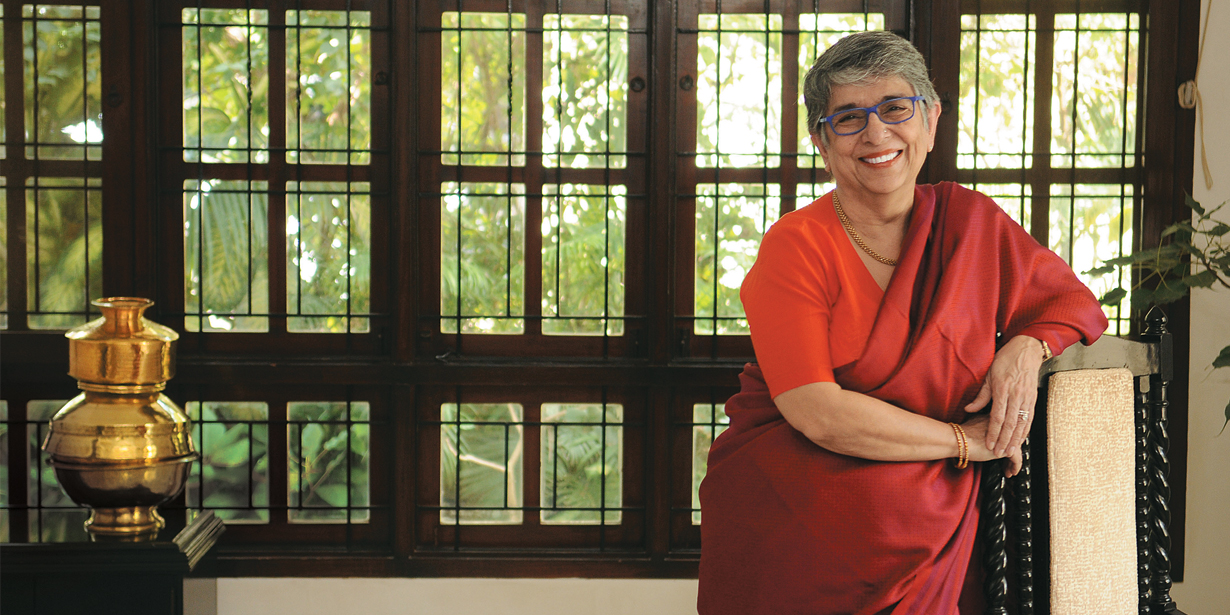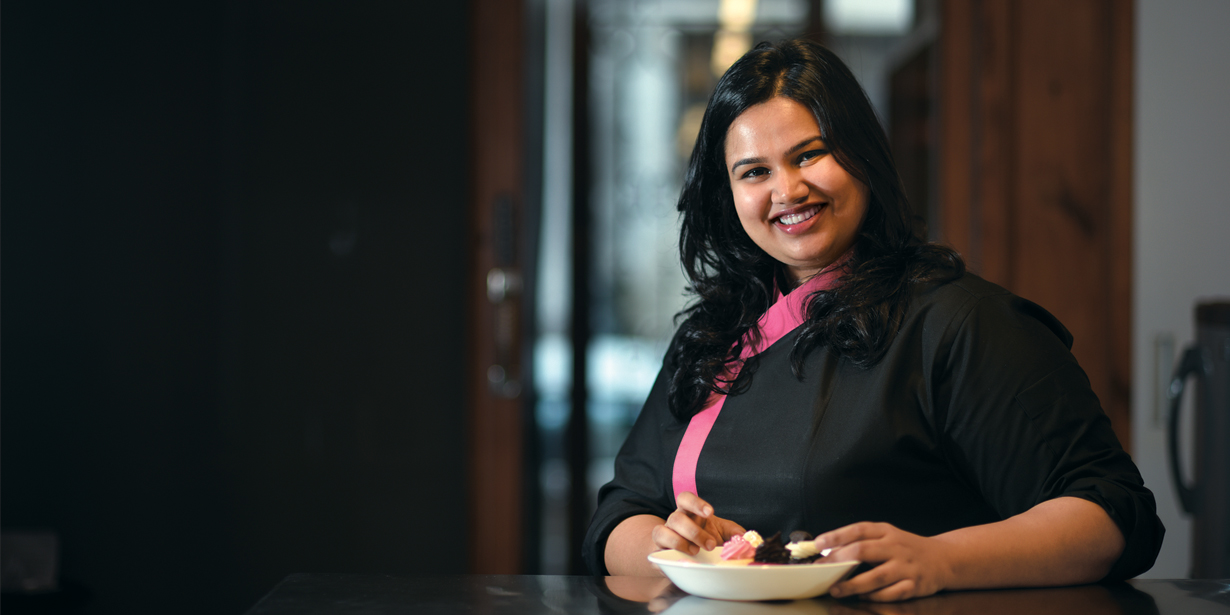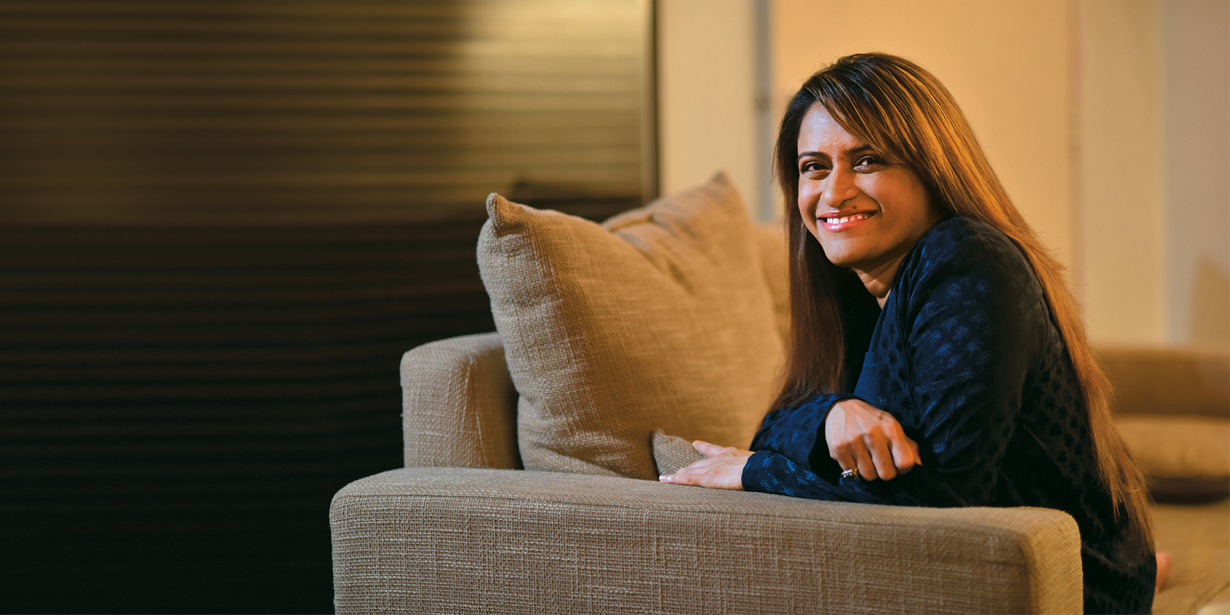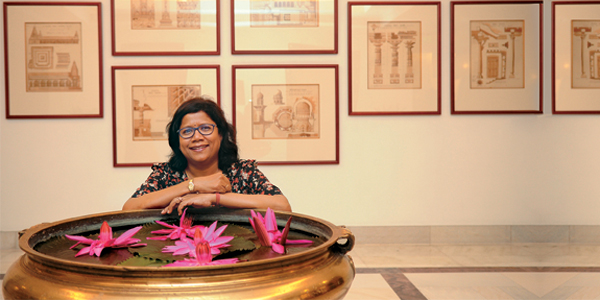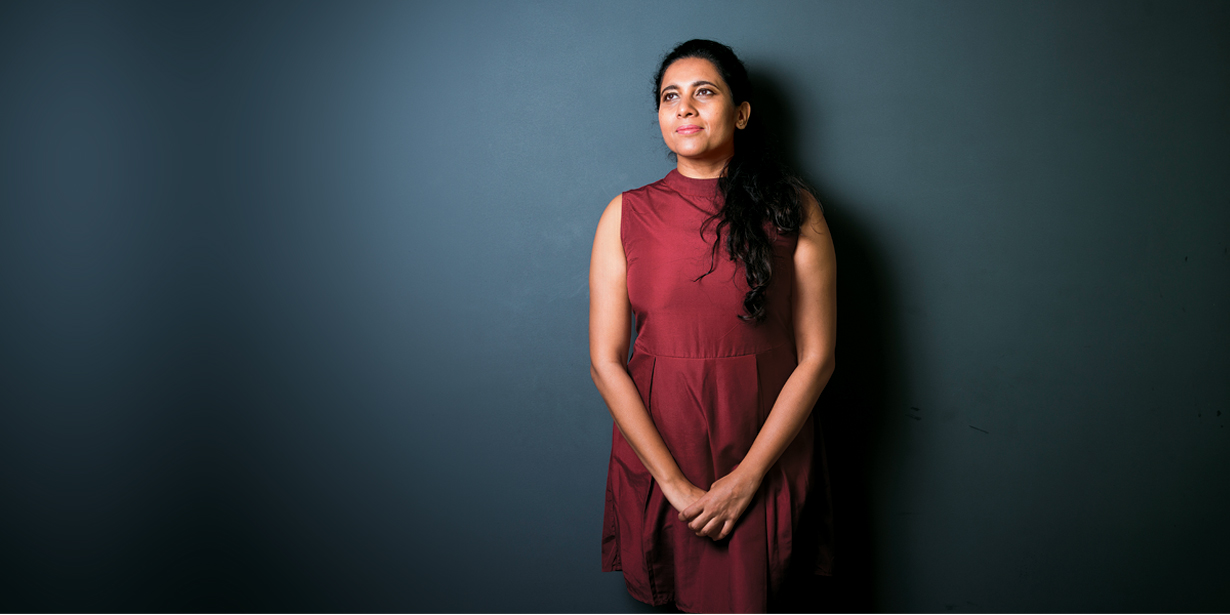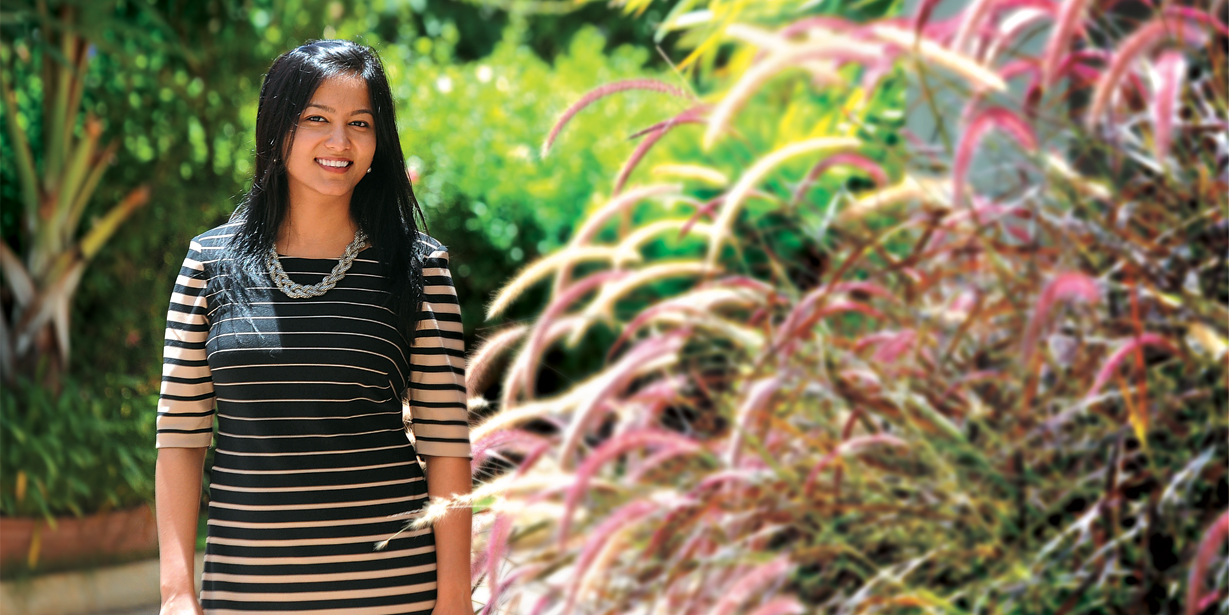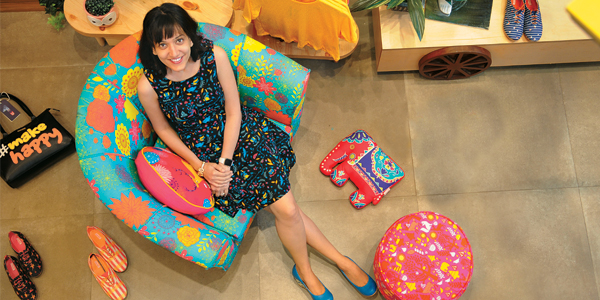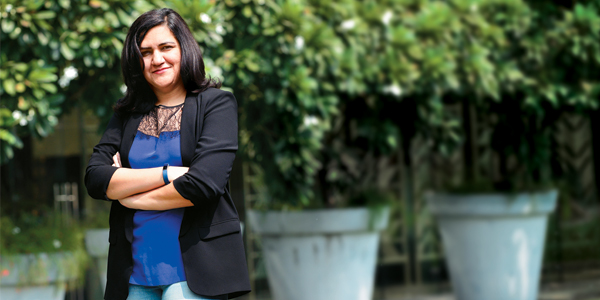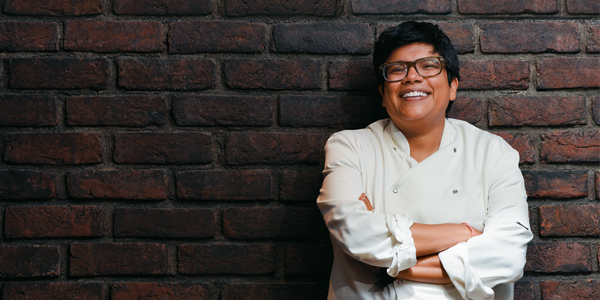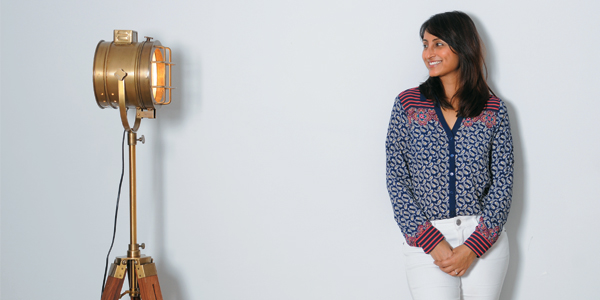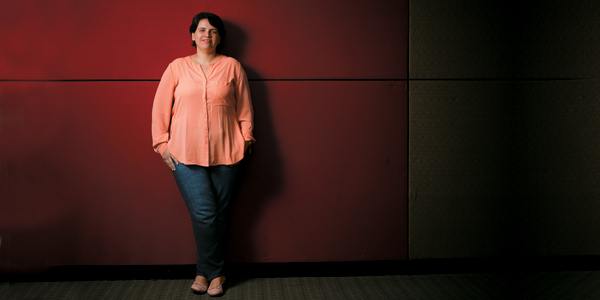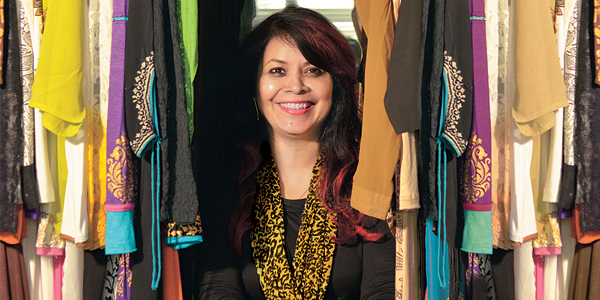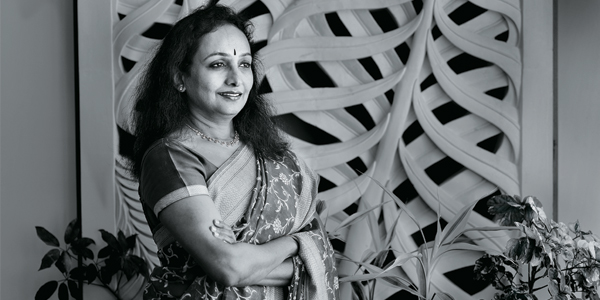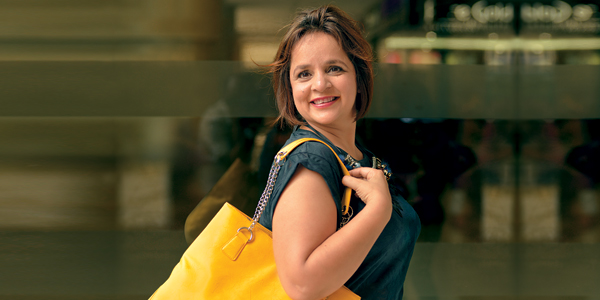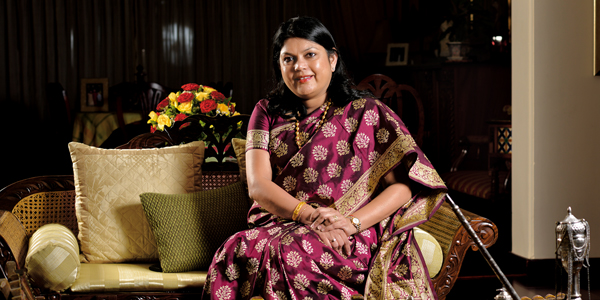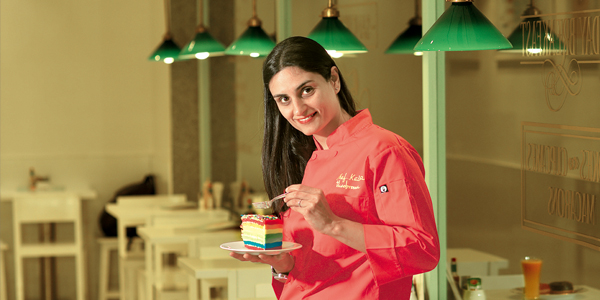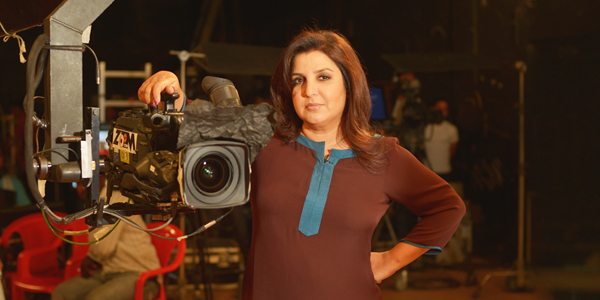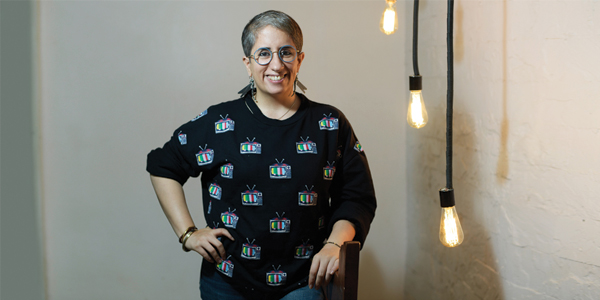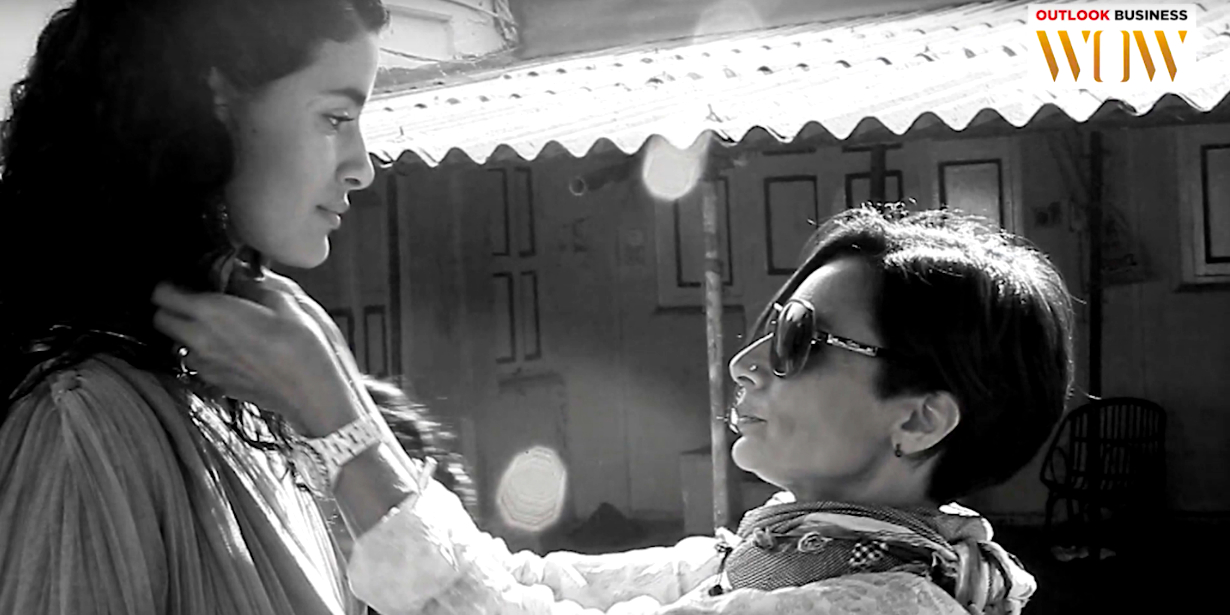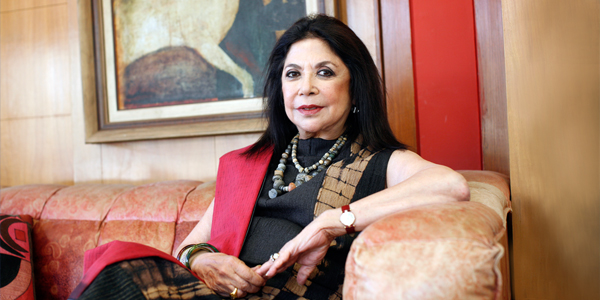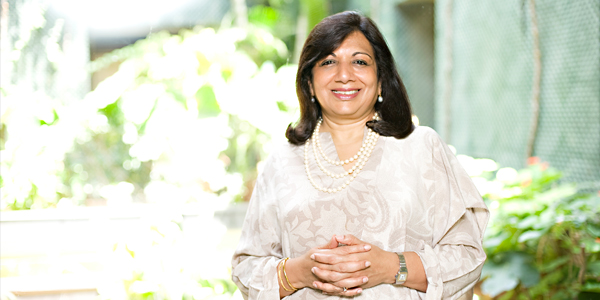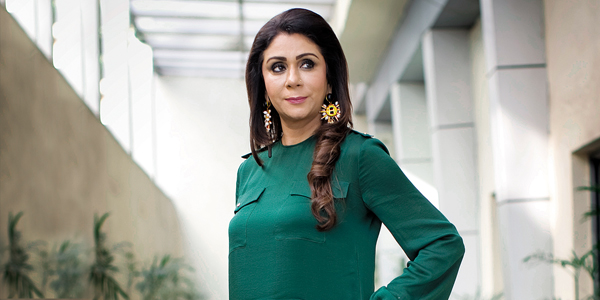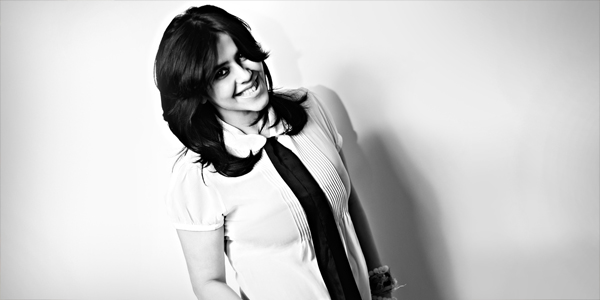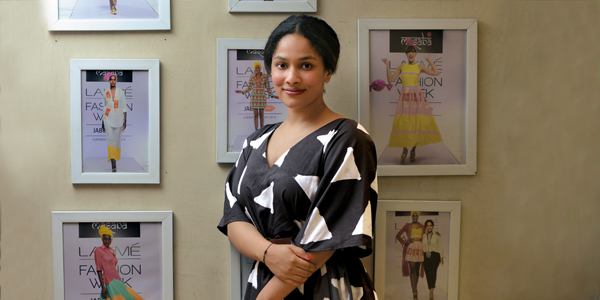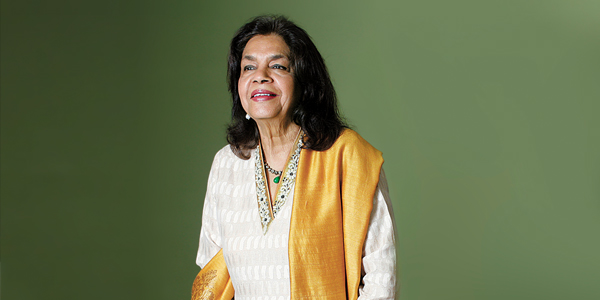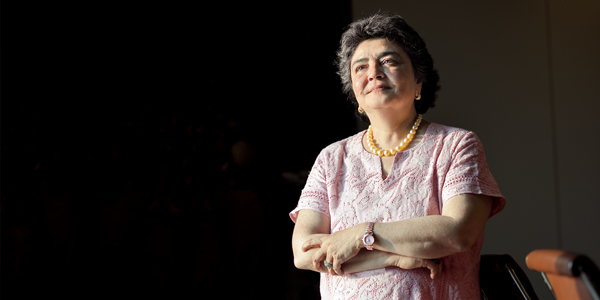Shahnaz Husain
Natural beauty products are today par for the course, but for pioneer Shahnaz Husain the association is more than just skin-deep
Shahnaz Husain’s day starts with a cup of herbal tea with honey and lemon. After an hour-long session of yoga and meditation, it is time for her hairdresser and make-up artist to arrive. They take a quick glance at her day’s schedule to check whether their boss has to face the camera; the make-up they use will be altered accordingly to suit the lighting. She is a perfectionist, and doesn’t take any chances. Having made a four-decade-long illustrious journey, making her name synonymous with beauty, the obsession to excel hasn’t waned a bit. People who have worked with her closely, swear that even today she handles many matters personally and is very meticulous, despite the fact that over a thousand hands work for her on a daily basis. According to Husain, connecting to people personally is very important. “Very early in my career, I made it a point to reply to letters that seek solutions for skin and hair problems myself. Four decades later, I still maintain this practice.” Her company Shahnaz Herbals Inc is estimated to have a turnover of Rs.650 crore and its 350 products are retailed through 30,000 outlets.
 Starting out
Starting out
In the 1980s, Husain became the poster girl for Ayurvedic beauty products, or, as she likes to call it, ‘selling India’s ancient civilisation in a jar’. Today, one can’t imagine her selling anything but beauty products, so much so that her face has become the brand. But it wasn’t so at the outset. Husain had a tough time finding her calling. She was born in family with royal connections. Her father, Nasirullah Beg, was the son of the chief justice of the princely state of Hyderabad and mother was the daughter of the commander-in-chief of the Hyderabad army. Interestingly, the wedding of her parents was personally arranged by the Nizam of Hyderabad. Husain did her schooling in Lucknow. But as was the norm, she couldn’t attend college. “I was married at 15 and became a mother by 16. Life seemed perfect, but I was bored with the drudgery of endless routine.” Luckily, her husband was supportive. So much so that she recalls his loss in the late ’90s by saying “he was the wind beneath my wings”.
Her husband worked with the State Trading Corporation and moved to Delhi in the ’60s. There, she experimented with innumerable courses in search of a vocation that suited her intellect. Interior decoration, cookery, painting — just about everything. But nothing held her interest for long. One evening, a family friend, Saeed Naqvi, casually suggested to her that should try and study beauty therapy and gave her the reference of a school run out of a room — Mrs. Chaterjee’s beauty school. Little did she know that her decision to enroll in a beauty school would change her life forever. She was soon absorbed in the world of beauty. As she was passionate to learn more, she asked her husband if they could move to London. However, he took a posting in Tehran for four years, which worked in her interest: every major international beauty school was represented there. Husain signed up for the best courses and expanded her knowledge base in the field. Soon, she started writing for a weekly magazine Tehran Tribune to finance her expensive courses. She also visited London several times during those four years to study at Helena Rubinstein’s institute.
She got the idea to begin an enterprise while in London. “During my training, I came across instances of damage caused by chemical substances. It prompted me to come up with a totally new concept of herbal beauty: care and cure. At that time, such a concept did not exist. I knew that the only way I could implement my ideas was by starting my own herbal salon and implementing my ideas of herbal and customised beauty care,” says Husain. Her husband’s next posting was in Paris, but they decided to go back to India as she felt it was the right time to launch her career in her own land. Her first salon was launched in 1971, with a loan of Rs.35,000 from her father. “They say, ‘Behind every successful man, there is a woman’ and I say the reverse is also true. Behind every successful woman, there is a wonderful, understanding and loving man.” She started small by formulating products and devising treatments for skin and hair problems. Soon, she became known for “herbal care and cures.”
Entering the international market was the biggest challenge for Husain. India was not even represented at that time, but she managed to attend international beauty conferences on her own steam, and tried to popularise Ayurvedic beauty care. She was also encouraged by Indira Gandhi to showcase her Ayurvedic products at the Festival of India in London in 1980. “I was given a counter in the perfumery section at Selfridges. In the face of fierce competition, to stand alone and sell India’s ancient civilisation in a jar was not easy. To everyone’s surprise, my consignment sold out in three days, breaking the store’s cosmetic sales records,” she recalls. Then there was no looking back. She moved on to Harrods in London, Galeries Lafayette in Paris, the Seibu chain in Japan, La Rinascente in Milan and El Corte Inglés in Spain.
Franchise route
Husain did not have capital and did not want to take bank loans to extend her salons either. So, she adopted a unique franchise system. “I trained women and encouraged them to start salons in a small way in their own homes. I gave them the franchise rights to start Shahnaz Herbal salons and carry out my specialised treatments. They could also earn on the sale of Shahnaz products. Thus, I had outlets for my products and treatments without investing in them,” she explains. Today, the company has 7,000 franchises.
“For us, franchising has been at the core of the success of Shahnaz Husain brand. In fact, our fast-paced expansion is due to the franchise system.” The franchisee stores served as outlets for the company’s products and treatments, but it was soon apparent that Shahnaz Herbals needed to do more to meet demand. During one of their marketing meetings, Husain’s husband placed a few jars on the table and quizzed her about them. She couldn’t recognise that those were fake Shahnaz Herbal products. The company had no distributors and never sold any of its products in the market, so it was time to feed the market through legitimate channels to prevent counterfeits from flooding the shelves. The first distribution channel was established in 1989 in Mumbai, the biggest market for all retail products. Later on, the network was expanded across the country. Today, the company has 752 distributors, who push the output from its Okhla and Noida factories.

“To be at the right place at the right time is important. So, in my case, when the back-to-nature trend started in the West, I was already there and an established name in natural beauty care,” says Husain. But it remains a man’s world, especially the world of business. Was she ever treated unfairly because of her gender? “I took up a business that concerned women. Initially, the salons were for women. Salons and beauty treatments for men came much later. I also started my own enterprise. Therefore, the question of the glass ceiling or gender bias did not apply to me.” Husain employed mainly women and never felt that they were inferior in any way, even in the corporate set-up. “Modern research says that a woman’s brain might be more efficient with regard to verbal ability. Their social conditioning and inherent nature can make them good managers,” she says. She feels that women are more tolerant, understanding, tactful, cooperative, consistent and sincere. She was extremely elated to meet a fellow woman entrepreneur in 2001 in Chennai, who had followed her path and vocation. It was Anita Roddick, founder of The Body Shop. The two women spent the day together, and when Husain left, she was surprised to discover that Roddick had been using the Shahnaz Herbal kajal for many years.
Premium, but for all
From the outset, since Husain had the world in her sights, the cosmetics positioning was always kept premium. But one day, a woman bumped into her on the roads of Delhi and told her she couldn’t afford her products. This prompted her to bring in some changes. “Since we have been the leaders in the premium segment, we decided to formulate products for the mass market. In fact, our middle-segment products have been doing well due to brand recognition and brand identity,” she shares. For its natural fairness cream, Fair One Plus, the brand has tied up with JL Morison to market and distribute the product. Yet, the Shahnaz Husain brand continues to be a largely premium and mid-segment brand and is yet to make serious inroads into the mass market. It is astounding for marketing gurus that Shahnaz Husain products are not advertised but everybody has heard about them. “I have never relied on advertising.” Husain continues to rely on word of mouth based on the belief that a satisfied client is the best advertisement.
The woman feels that her grit and commitment has brought her this far. It was in 1983 that PM Indira Gandhi asked Husain to give a talk on Ayurveda to the wives of the heads of the Commonwealth states on one of her visits to her residence. Husain was touched by the gesture. But a tragedy was in the offing. On the morning of the event, her father died of a heart attack. Now, the choice was between grief and resilience. After the initial hiccups, she chose the latter. Even Indira Gandhi was impressed to see her speak at the event, despite her painful loss. The next day, 12 First Ladies were knocking on her door for beauty tips. Between then and now, Husain has continued doing what she is good at — spreading beauty all around.







